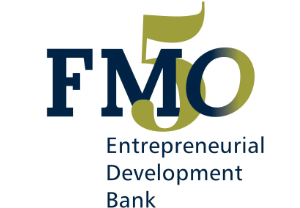The Dutch entrepreneurial development bank, FMO, announced today the signing of a USD 18 million working capital loan to Işık Tarım, a Turkish agro-processing company specializing in organic dried fruits, hazelnuts, and frozen fruits. This 100% Green and Reducing Inequalities-labeled transaction will support Işık Tarım’s procurement activities within its flagship “Happy Village Program,” which integrates over 4,000 smallholder farmers into an organic production network.
Supporting Smallholders through the Happy Village Program
Işık Tarım is a family-owned Turkish company founded in 1984, active across three primary segments: dried fruits, hazelnuts, and quick-frozen products such as strawberries, all key global commodities. Türkiye’s favorable climate and dispersed production regions minimize supply chain risks, further supporting the company’s resilience and competitive edge as they export these products to international markets, including Europe and the U.S.

The Happy Village Program is at the heart of Işık Tarım’s operations and success. The initiative supports smallholder farmers—most with land sizes between 1-10 hectares—by providing technical assistance, inputs, and organic certification. The company purchases crops immediately after harvest, ensuring farmers receive timely payments while guaranteeing quality and sustainability. Farmers receive fair market prices, which enables farmers to receive a premium above conventional prices and facilitates the transition into Işık Tarım’s organic production network.
Enhancing Food Security and Sustainability
FMO’s financing, fully Green and Reducing Inequalities labeled, will empower Işık Tarım to process and export larger volumes, enhancing its contribution to food security and economic activity in rural Türkiye. With this investment, FMO strengthens Işık Tarım’s ability to scale its operations, increase exports, and boost rural employment in Türkiye—all while continuing to promote organic farming across the country.
“This transaction underscores FMO’s commitment to sustainable agriculture and rural development,” said Hans Boogard, Director of Agribusiness, Food & Water at FMO. “Işık Tarım is a leading market player in the organic dried and processed fruit sector, and their innovative Happy Village Program aligns perfectly with our goal to reduce inequalities and foster sustainable supply chains. We are excited to support their growth and contribution to global food security with this new customer!”

Işık Tarım added, “We are proud to partner with FMO through this working capital loan, which strengthens our commitment to sustainable agriculture and inclusive growth. This collaboration will help us expand the Happy Village Program that we have been running since 1990, supporting over 4,000 smallholder farmers, enhancing food security, and boosting rural development in Türkiye.
This investment will enable us to scale up our operations, expand our export footprint, and create more opportunities for rural communities while continuing to prioritize quality and sustainability. We are grateful to FMO for recognizing our vision and thankful on behalf of Happy Village farmers, and we look forward to working together to create a brighter future for the agricultural sector in Türkiye and beyond.”
This transaction has received a 100% Green Label due to climate mitigation and biodiversity support, given the organic supply chain of Işık Tarım, and furthermore qualifies for a 100% Reducing Inequalities label due to the the support contracted farmers receive through the Happy Village program. Our financing will also support the economic prosperity and resilience of the farmers through being able to grow and export more fruits, in line with SDG 8 of Decent Work and Economic Growth.



